Management
The team leading the centre's innovative approach to cultural research includes the Director, based in Singapore, and the Advisory Board that consists of other academics in the country and across the world.
Director
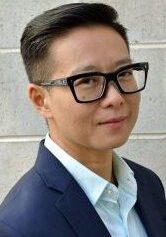
National University of Singapore
Head, Department of Communications and New Media
Audrey Yue is Professor in Media, Culture and Critical Theory, Head of Communications and New Media, Convenor of the Cultural Studies in Asia multidisciplinary programme and Director of the Cultural Research Centre at the National University of Singapore. Before returning to Singapore (where she was born and schooled) and joining NUS in July 2017, she lived in Australia for 30 years where she last held the positions of Professor in Cultural Studies and Director of the Research Unit in Public Cultures at the University of Melbourne.
She is trained as a Humanities scholar, and now conducts and publishes research across both Humanities and Social Sciences. Her research covers the fields of transnational Chinese media cultures; cultural policy and development, and Asian gender studies. She is currently International Partner Investigator in four Australian Research Council and Social Sciences and Humanities Research Council of Canada funded projects on arts participation in the smart city; young people and multiculturalism, and; Asian media cities. As part of her engaged research practice, she has established 16 industry partnerships across the government and NGO sectors of migrant youth, multicultural arts and cultural development in Australia and South Korea. She was Ministerial Appointment to Australia’s Victorian State Government’s Multicultural Arts Policy Advisory Committee (2010-2012), and between 2011-2015, conducted longitudinal evaluation of arts and culture programs with five national, state and local government agencies in Australia.
She is recipient of three international and university-wide teaching excellence awards. She supervised to completion 21 PhD theses as Principle Supervisor; developed and coordinated subjects on Asian media cultures, digital diasporas and cultural policy, and; conducted executive masterclasses on cultural evaluation. Currently, she also serves as External Academic Advisor to the Department of Cultural Studies at Lingnan University (Hong Kong) and is Honorary Professorial Fellow at the University of Melbourne.
Advisory Board
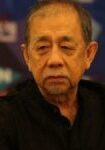
Chua Beng Huat is concurrently Professor, Urban Studies, Yale-NUS Liberal Arts College and Professor of Sociology, NUS, with research interests in consumer culture, East Asian Pop Culture and political economy and culture of Singapore. He has previously served as Research Leader, Cultural Studies in Asia Research Cluster, Asia Research Institute; Convenor Cultural Studies Programmes and Head, the Department of Sociology, National University of Singapore. His publications in Cultural Studies include: Life is Not Complete without Shopping, Structure, Audience and Soft Power in East Asian Pop Culture; Consumption in Asia: lifestyles and identities; Elections as Popular Culture and Co-edit with Professor Chen Kuan-Hsing Inter-Asia Cultural Studies Journal and Reader.
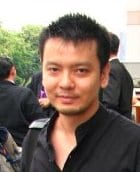
Daniel Goh is currently Assistant Professor at the Department of Sociology, Faculty of Arts and Social Sciences, National University of Singapore. He is also a Research Associate with the Asian Urbanisms and Religion and Globalisation in Asian Contexts Clusters, Asia Research Institute, NUS. He obtained his doctoral degree from the University of Michigan, Ann Arbor, in 2005.
His primary specialization is in comparative-historical sociology, though he crosses over very comfortably into cultural studies and urban studies. Colonialism, state formation and postcolonial identities in its many manifestations such as multiculturalism, nationalism, cosmopolitanism and so on have been his main research concerns over the past 5 years. His doctoral dissertation work was on the relationship between ethnographic knowledge and colonial state formation in British Malaya and the American Philippines.
More recently, he has been focused on the aspirational politics of urbanism surrounding global city-making and heritage conservation in 3 ex-British Chinese-majority postcolonial city-states: Hong Kong, Penang and Singapore. For this research, he has been looking at cultural politics over specific spatial practices being played out between city-states and civic groups.
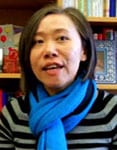
Simon Fraser University, Canada
Professor of Gender, Sexuality & Women’s Studies
Co-Director, Institute for Transpacific Cultural Research
Prof. Leung’s affiliations include Canada’s Institute for Performance Studies, the Centre for the Policy Study of Culture & Communities, the David Lam Centre for International Communication, and the World Literature Program. She has engaged the Chinese diaspora through columns in the 星島日報 Sing Tao Daily broadsheet.
Prof. Leung’s current research focuses on transpacific film cities and on the representational politics of Queer Asia in film.
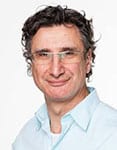
The University of Melbourne, Australia
Director of the Research Unit in Public Cultures.
Professor in School of Culture and Communication
Nikos Papastergiadis is the Director of the Research Unit in Public Cultures, based at The University of Melbourne. He is a Professor in the School of Culture and Communication at The University of Melbourne and founder – with Scott McQuire – of the Spatial Aesthetics research cluster. He is Project Leader of the Australian Research Council Linkage Project, ‘Large Screens and the Transnational Public Sphere’, and Chief Investigator on the ARC Discovery Project ‘Public Screens and the Transformation of Public Space’.
He was educated at The University of Melbourne and the University of Cambridge. Prior to joining the School of Culture and Communication, he was Deputy Director of the Australia Centre at the University of Melbourne, Head of the Centre for Ideas at the Victorian College of Arts, and lecturer in Sociology and recipient of the Simon Fellowship at the University of Manchester.
Throughout his career, Nikos has provided strategic consultancies for government agencies on issues relating to cultural identity and has worked in collaborative projects with artists and theorists of international repute such as John Berger, Jimmie Durham and Sonya Boyce. His long involvement with the ground breaking international journal 'Third Text', as both co-editor and author, was a formative experience in the development of an interdisciplinary and cross cultural research model, which continues to inform his research practice.
His publications include Modernity as Exile (1993), Dialogues in the Diaspora (1998), The Turbulence of Migration (2000), Metaphor and Tension (2004) Spatial Aesthetics: Art Place and the Everyday (2006), Cosmopolitanism and Culture (2012). He is also the author of numerous essays, which have been translated into over a dozen languages and appeared in major catalogues such as the Biennales of Sydney, Liverpool, Istanbul, Gwangju, Taipei, Lyon, Thessaloniki and Documenta 13.
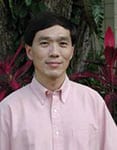
Nanyang Technological University
Professor of English, College of Humanities, Arts & Social Sciences
C. J. W.-L. Wee received his PhD from the University of Chicago. He is Professor of English in the Nanyang Technological University and has also been a Fellow in the social and cultural studies programme at the Institute of South-east Asian Studies (ISEAS), Singapore (now the ISEAS-Yusof Ishak Institute). He has held Visiting Fellowships at the Centre for the Study of Developing Societies, Delhi, India; the Humanities Research Centre, Australian National University; the Society for the Humanities, Cornell University; and the Centre for Research in the Arts, Social Sciences and the Humanities, Cambridge University. Wee is the author of Culture, Empire, and the Question of Being Modern (2003) and The Asian Modern: Culture, Capitalist Development, Singapopre (2007); he is also the editor of Local Cultures and the ‘New Asia’: The State, Culture and Capitalism in Southeast Asia (2002) and the co-editor of Contesting Performance: Global Sites of Research (2010). His editorial work includes The Complete Works of Kuo Pao Kun, Vol. 4: Plays in English. His present research interests is in the formation of modern and contemporary art (including theatre, visual and performance art, and anglophone literature) in relation to the mutating face of capitalist development.

